Veteran Swedish filmmaker Ingmar Bergman cited Paul Thomas Anderson’s ‘Magnolia’ as an example of the “strength of American cinema”. An epic drama, this 1999 film follow the lives of several people who are in search of happiness, forgiveness and meaning in the San Fernando Valley. The film has an ensemble cast that includes Jeremy Blackman, Tom Cruise, Melinda Dillon, Philip Baker Hall, Philip Seymour Hoffman, Ricky Jay, William H. Macy, Alfred Molina, Julianne Moore among others. ‘Magnolia’ is often regarded by fans and critics as one of the finest films of the 90s. Recipient of the prestigious Golden Bear at the Berlin International Film Festival, the film is a deeply personal creation of Paul Thomas Anderson.
‘Magnolia’ is an example of Hyperlink cinema, a term coined by American nonfiction writer, critic and journalist Alissa Quart. Hyperlink Cinema developed as a narrative structure where writers would create multiple stories which would cumulate to form a primary narrative but also function as a binary entity. The films that we’re going to discuss here follow the narrative strategies of ‘Magnolia’. They all belong to different genres, varying from dramas to comedies to crime thrillers, but the stories within the film are formulated by this intrinsic form of storytelling. With that said, here’s the list of best movies similar to ‘Magnolia’ that are our recommendations. You can watch several of these movies like ‘Magnolia’ on Netflix, Hulu or Amazon Prime.
10. Nine Lives (2005)

Written and directed by Columbian filmmaker Rodrigo García, ‘Nine Lives’ consists of nine short of nine different women whose lives are connected in some way or the other. The film explores themes of filial relationships, fractured love, adultery, illness, and death which all thematically interlink the nine short stories. The drama film forms a narrative similar to that of Russian playwright and author Anton Pavlovich Chekhov’s short stories, which are constructed with single but unbroken narratives. The patient filmmaking techniques are reflected with the slow and measured narrative which does not cater to everyone. However, the novelistic treatment of the film makes it a stimulating watch, which has earned the right to be analysed and judged with patience.
9. Dunkirk (2017)
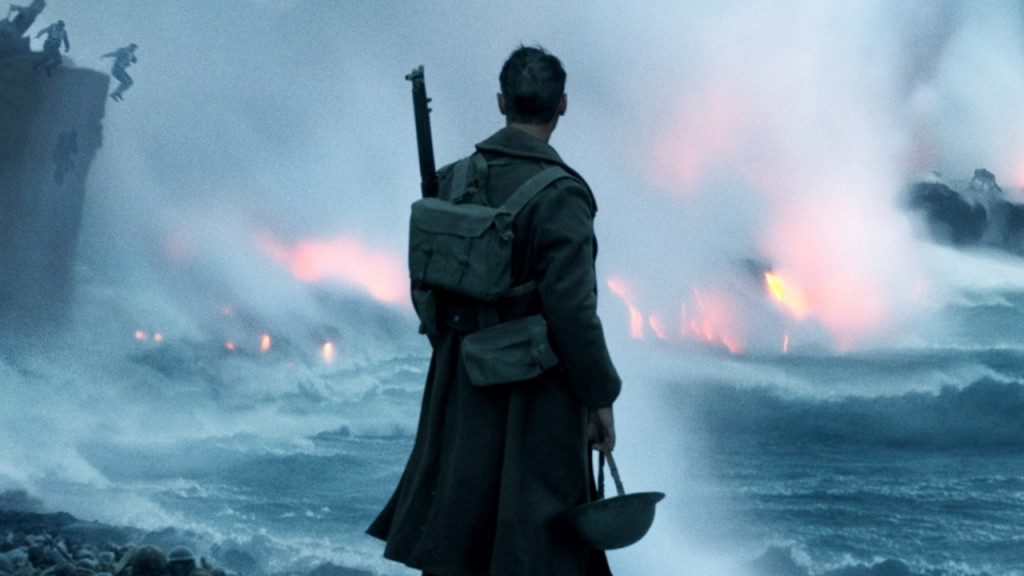
Directed by Christopher Nolan, ‘Dunkirk’ is a war film focusing on the epic Dunkirk evacuation in World War II. The film showcases the crisis and destruction of war through three non-linear narratives titled land, sea and air. The narrative is quite different from the archetypal war movies as it does not ooze with American nationalism or focus on dialogues. Instead, the ensemble pays attention to the psychological functioning of the men trapped in the rubble of war. The three interweaving narratives help Nolan explore the atrocities of war from multiple perspectives. Adding to the grandeur of Nolan’s vision is the haunting score by German composer Hans Zimmer and the visually beautiful and cosmic cinematography by Dutch-Swedish cinematographer Hoyte van Hoytema. Cited as one of the best war films of all time, ‘Dunkirk’ went on to bag multiple nominations at award ceremonies.
8. Requiem for a Dream (2000)
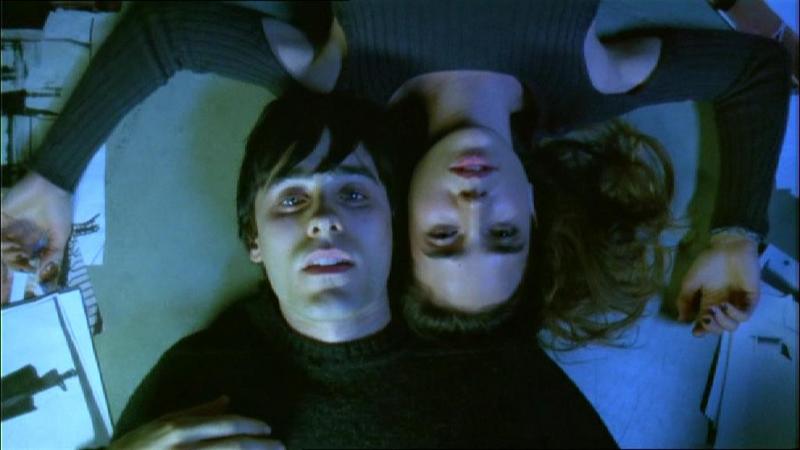
Directed by Darren Aronofsky, ‘Requiem for a Dream’ is a deeply depressing experience. By employing the tool of hyperlink narrative, the film follows the story four people whose lives go on a horrendous downward spiral after gradually getting addicted to drugs. The film has been often regarded as one of the best films of the 2000s. Aronofsky employs his classic archetypes of disturbing cinematography and equally disturbing visuals, making it quite a squeamish to watch. Although it was screened out of the Cannes Film Festival in 2000, ‘Requiem for a Dream’ has since maintained high esteem among critics and cult followers.
7. Traffic (2000)

‘Traffic’ is a remake of the British television miniseries ‘Traffik’, which premiered in 1989. Directed by Steven Soderbergh, ‘Traffic’ explores the story of drug users, enforcers, politicians and traffickers, and deals with their experiences. The flick stars Michael Douglas, Don Cheadle, Benicio Del Toro, Dennis Quaid and Catherine Zeta-Jones. The film is constructed of multiple narratives which deal with different aspects of the drug cartel. The film’s tone is unabashed and brazenly comments upon the poor legal system which fails to regulate the rising crime and the drug business. The film utilizes the form of documentary filmmaking, credited to handheld camerawork which gives it a feeling of gritty realism. The film earned quite the critical applause with it bagging four Academy Awards for Best Actor in a Supporting Role, Best Director, Best Writing, Screenplay Based on Material Previously Produced or Published and Best Film Editing, to name a few.
6. Inglourious Basterds (2009)
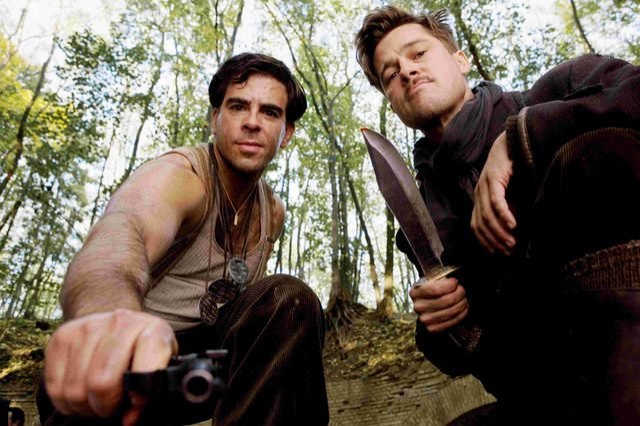
A black satirical comedy on Nazi Germany, ‘Inglorious Basterds’ employs alternate history to essentially mould the events according to the comedic morality. Inspired by Italian director Enzo G. Castellari’s, ‘The ‘Inglorious Bastards’ (1978), the film is divided into distinctive sections, elevating the contextual humour. The narrative brims with classic Tarantino archetypes which are further divided into separate narratives. Tarantino crafts the characters masterfully which blossom in the binaries of the comically written plot. It went to earn heavy accolades from critics and audience. With a brilliant cast and a cohesive screenplay, ‘ Inglourious Basterds’ is a must watch.
5. Amores Perros (2000)
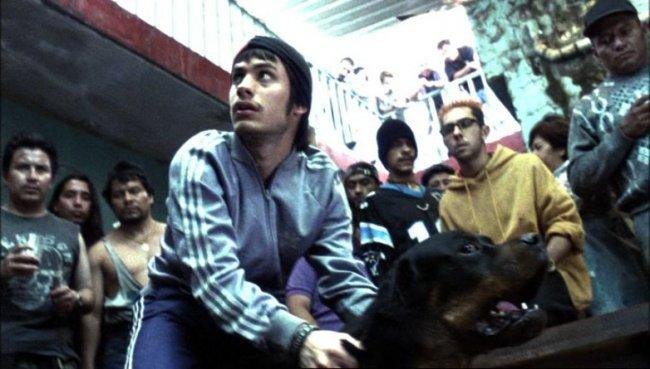
A Mexican crime drama, ‘Amores Perros’ works as an anthology contracted as a “triptych”, where three distinct stories sparked off by a car accident in Mexico City cumulate to form one single narrative. We see a teenager in the slums who gets involved in dogfighting, a model who brutally injures her leg and a mysterious hitman — all the stories are linked by the motif of a dog. Directed by two time Academy Award winner Alejandro González Iñárritu, ‘Amores Perros’ explores a variety of themes such as violence, disparity among classes and betrayal within the context of the world of crime. A part of the ‘Trilogy of Death’, which is formed by Iñárritu’s other directorial ventures ‘21 Grams’ (2006) and ‘Babel’ (2003), the film is crafted with expertise and elegance. With the solid screenplay written by Mexican screenwriter and author Guillermo Arriaga, the film is built on a cohesive narrative which neatly interlinks the three stories to successfully work as an anthology as well as an interweaving narrative.
Read More: Movies Like Manchester by the Sea
4. Nashville (1975)
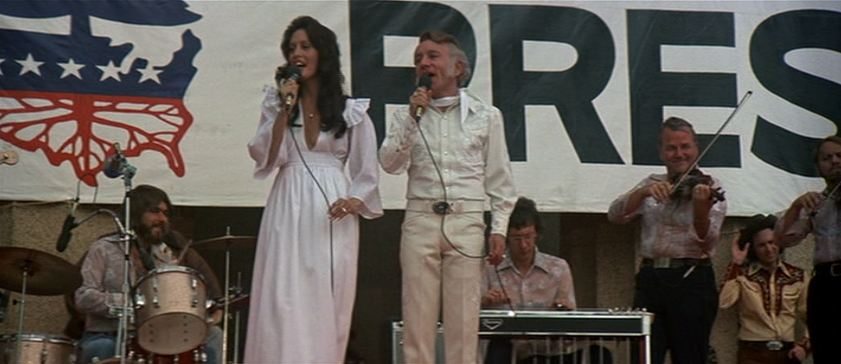
Directed by American filmmaker Robert Altman, ‘Nashville’ is a satirical musical comedy-drama is the story of the lives of multiple people who are involved in the country music and gospel music businesses in Nashville, Tennessee. The film chronicles the characters’ efforts to succeed or hold on to their success. Their stories are interwoven with the efforts of a political operative and a local businessman to stage a concert rally before the state’s presidential primary for a populist outsider running for President on the Replacement Party ticket.
Described as the “… the funniest epic vision of America ever to reach the screen” by veteran American film critic Pauline Kael, ‘Nashville’ is an extremely smart and self-aware piece of work which makes scathing but nuanced criticism at the political landscape of America. Known for its ensemble cast, ‘Nashville’ is one of the pioneering films to utilize the tool of network narratives. The film’s well-expressed commentary coupled with the enunciated screenplay by American director and screenwriter Joan Tewkesbury has helped it to attain legendary status in the genre of comedy films.
Read More: Movies Like Sleepy Hollow
3. The Rules of the Game (1939)
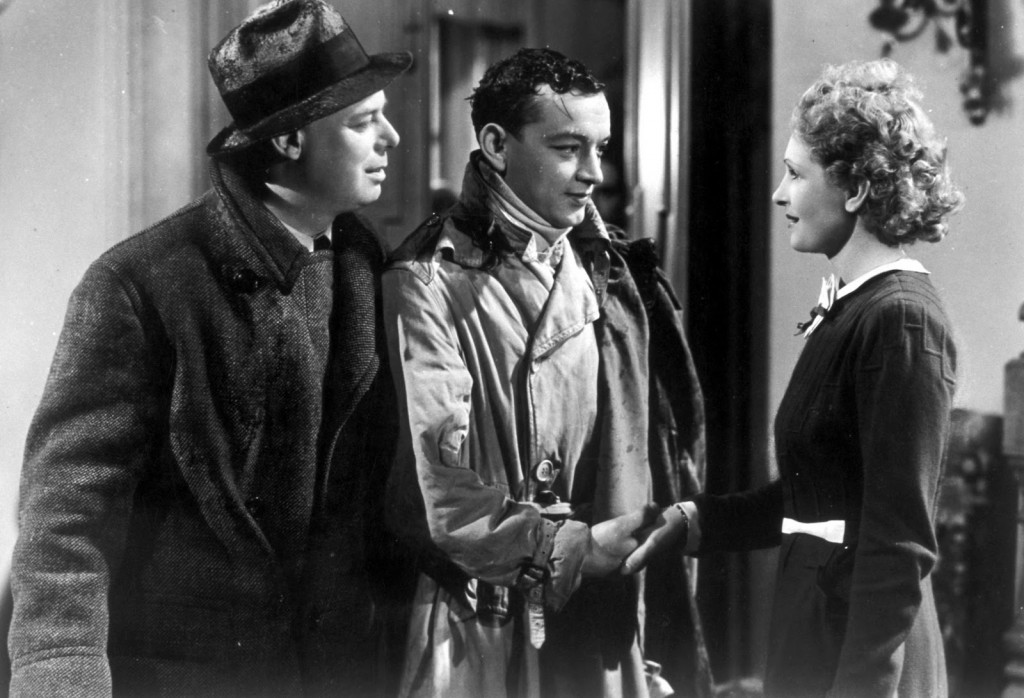
Developing from the comedy genre of “comedy of manners”, ‘The Rules of the Game’ is a satirical dramedy following the lives of members of aristocratic French society and their servants before the beginning of World War II. With the utilization of the impending doom of the war, the film observes, showcases and further comments upon the characters’ moral callousness on the eve of the yet unknown impending destruction. Directed by French auteur Jean Renoir, the film was initially met with complete disdain and rejection from critics and audience alike, leading to poor financial reception in France. Much of it was credited to the sudden experience of a new narrative along with the sensibilities of the French government, which was at the time in the midst of war and scorned upon the film’s anti-war message. However, the witty and humorous tonality of the film has since earned it humongous critical praise, with many film devotees considering it as one of the greatest films in the history of cinema.
Read More: Movies Like The Green Mile
2. Do the Right Thing (1989)
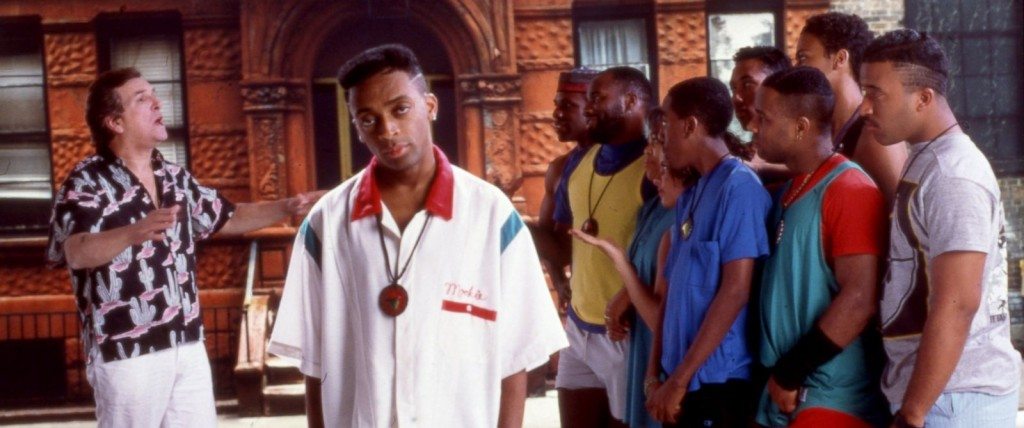
‘Do the Right Thing’ (1989) is set on the hottest day of the year on a street in the Bedford-Stuyvesant section of Brooklyn, where hate and seething racial tension culminates in tragedy and violence. Directed by Spike Lee, the film delves deep into the various facets of racism. An artistic inspection of prejudice, ‘Do the Right Thing’ plays on its title, i.e. “…what is the right thing?” The narrative is formulated through different perspectives on the impact of racism and discrimination. The film holds a strong grasp in direction, writing and editing. Each of these essential elements unite to produce a brilliant piece of work. Embroiled in massive controversy, the film glacially rose in critical prominence and earned the appreciation of veteran critics like Gene Siskel and Roger Ebert, who ranked it the best film of 1989 and one of the best of the decade.
Read More: Movies Like The Sixth Sense
1. Pulp Fiction (1994)
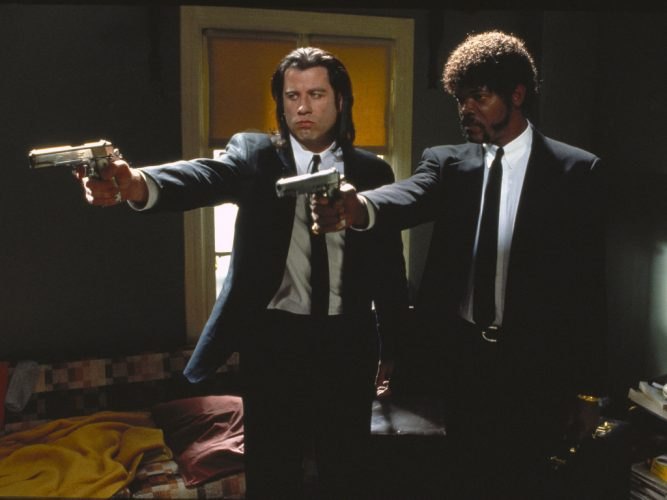
‘Pulp Fiction’ chronicles the story of several criminals in Los Angeles, and how they come across each other on one fateful day. Paying homage to the popular adrenaline rushing pulp magazines and hard-boiled crime novels of the mid-20th century, the film established the foundation on crisp, mortally degrading and punchy dialogues, which sketch out the outlaying dark humour. Pulp Fiction’ is classic Tarantino and the quintessential 90s flick. The film’s celebrated screenplay and narrative structure swept the art of filmmaking, breathing new life in independent and parallel cinema and re-inventing postmodern literature. The movie has earned several accolades and is today widely regarded as one of the defining movies of the 90s. The interweaving stories are placed in a nonlinear format, showcasing the innate bizarreness of the postmodern genre of filmmaking. Quentin Tarantino and Roger Avary won the Best Original Screenplay at the Oscar’s; Tarantino also won the Palme d’Or at the Cannes Film Festival and three awards at the National Society of Film Critics. The film has also been included in several lists by top critics and film pundits.
Read More: Movies Like Pulp Fiction

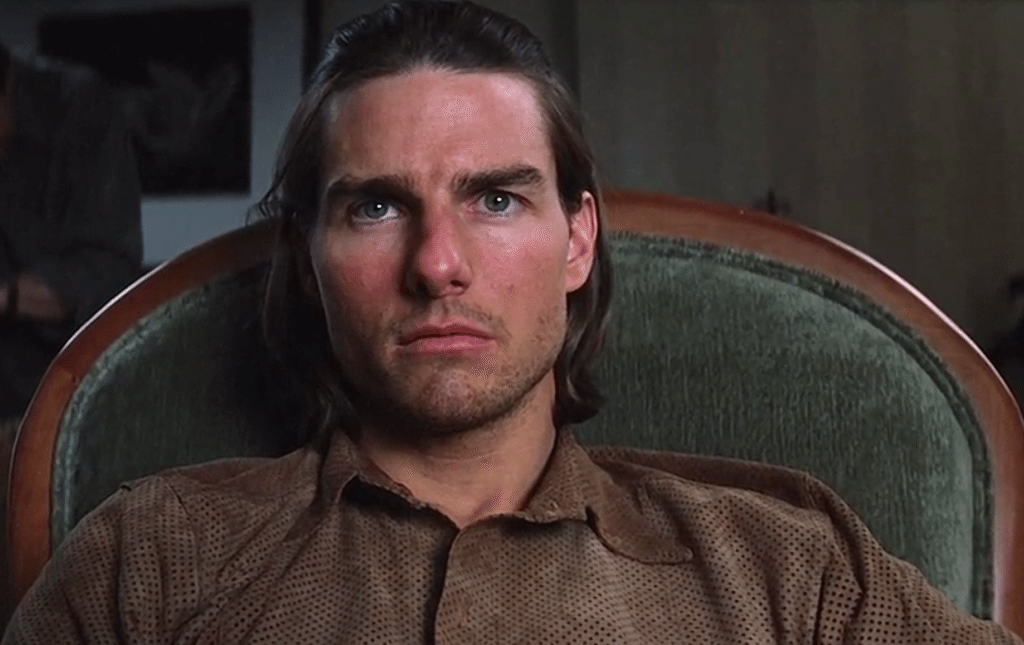
You must be logged in to post a comment.